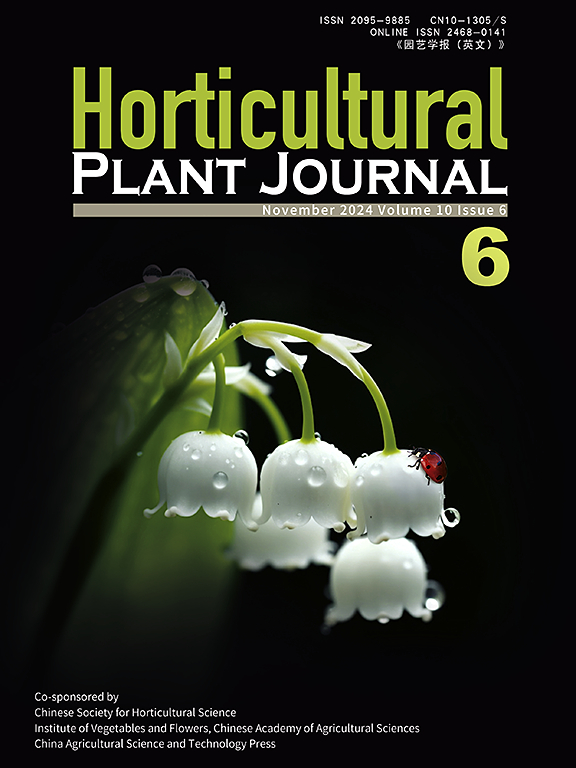Improving the environmental and economic sustainability of citrus orchard systems through optimization of fertilization and organic carbon amendment
IF 6.2
1区 农林科学
Q1 HORTICULTURE
引用次数: 0
Abstract
Excessive fertilization (NPK) and the depletion of soil organic carbon (C) have become growing concerns in subtropical orchard production, posing a threat to agricultural sustainability. To address these challenges, an integrated soil nutrient management strategy is crucial. Using pomelo orchard as a case, a two-year field experiment was conducted with three treatments, i.e., FP (NPK fertilizer overused), OPT (balanced NPK fertilization), and OPT + C (balanced NPK with organic amendments). The aim was to assess the potential benefits of balancing nutrient inputs and incorporating organic amendments for enhancing efficiency and quality production. The results revealed that, compared to the FP treatment, the OPT treatment significantly reduced environmental footprints: 92.7% for carbon, 85.4% for nitrogen, and 99.9% for phosphorus, while simultaneously improving the benefit-cost ratio by 80.8%. Furthermore, the OPT + C treatment outperformed the OPT treatment by improving fruit yield (by 8.7%) and fruit quality, as indicated by the lowest titratable acidity (0.62%) and highest vitamin C content (403.2 mg kg通过优化施肥和有机碳修正提高柑橘园系统的环境和经济可持续性
过量施肥(NPK)和土壤有机碳(C)耗竭已成为亚热带果园生产中日益突出的问题,对农业的可持续性构成威胁。为了应对这些挑战,一项综合土壤养分管理战略至关重要。以柚子果园为例,进行了为期2年的大田试验,采用过量施用磷钾肥(FP)、平衡施用磷钾肥(OPT)和平衡施用有机肥(OPT + C) 3种处理。目的是评估平衡养分投入和纳入有机改良剂以提高生产效率和质量的潜在效益。结果表明,与FP处理相比,OPT处理显著降低了环境足迹:碳足迹为92.7%,氮足迹为85.4%,磷足迹为99.9%,同时将效益成本比提高了80.8%。此外,OPT + C处理在提高果实产量(8.7%)和果实品质方面优于OPT处理,可滴定酸度最低(0.62%),维生素C含量最高(403.2 mg kg - 1)。结构方程模型表明,氮磷钾平衡施用改善了柚子根系形态,在保持产量的同时实现了经济效益和环境效益的协同平衡。此外,有机改良对土壤性质和酶活性有积极影响,促进了柚子产量和品质的协同提高。综上所述,平衡氮磷钾与有机改剂配施在柚子产量、果实品质、环境足迹和效益成本比方面具有协同改善作用。这些发现为通过土壤养分综合管理策略提高果园效率和优质生产提供了有价值的框架。
本文章由计算机程序翻译,如有差异,请以英文原文为准。
求助全文
约1分钟内获得全文
求助全文
来源期刊

Horticultural Plant Journal
Environmental Science-Ecology
CiteScore
9.60
自引率
14.00%
发文量
293
审稿时长
33 weeks
期刊介绍:
Horticultural Plant Journal (HPJ) is an OPEN ACCESS international journal. HPJ publishes research related to all horticultural plants, including fruits, vegetables, ornamental plants, tea plants, and medicinal plants, etc. The journal covers all aspects of horticultural crop sciences, including germplasm resources, genetics and breeding, tillage and cultivation, physiology and biochemistry, ecology, genomics, biotechnology, plant protection, postharvest processing, etc. Article types include Original research papers, Reviews, and Short communications.
 求助内容:
求助内容: 应助结果提醒方式:
应助结果提醒方式:


